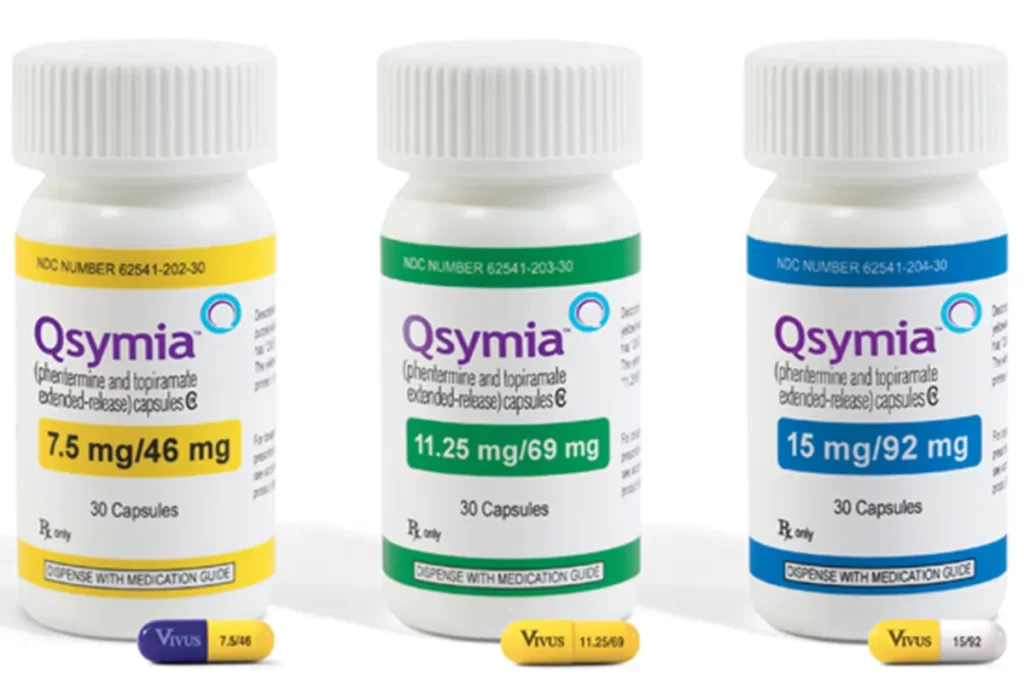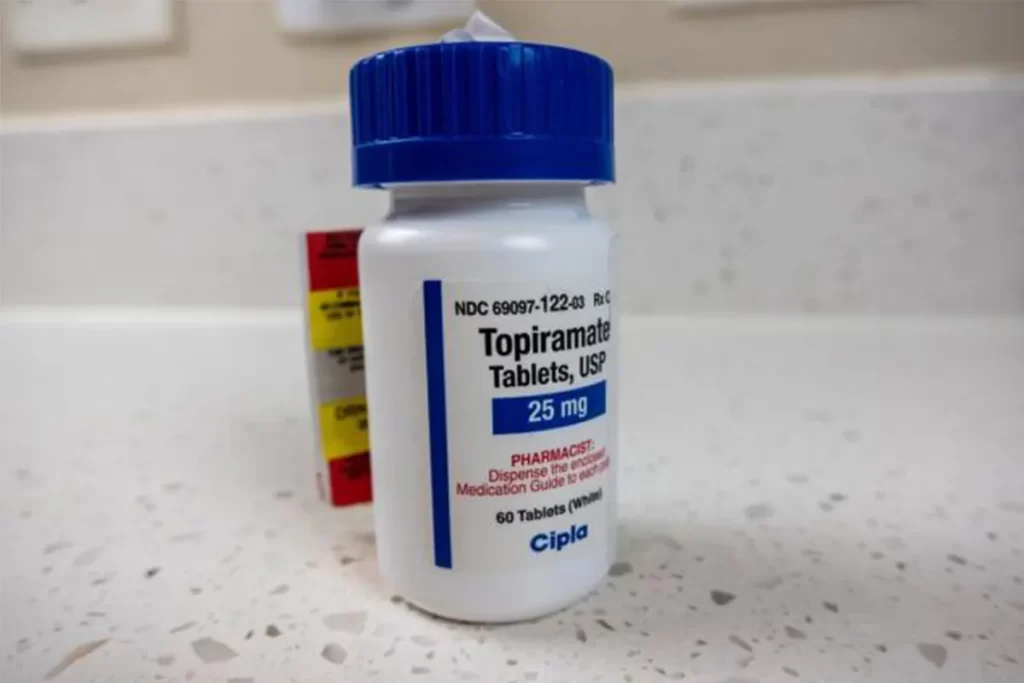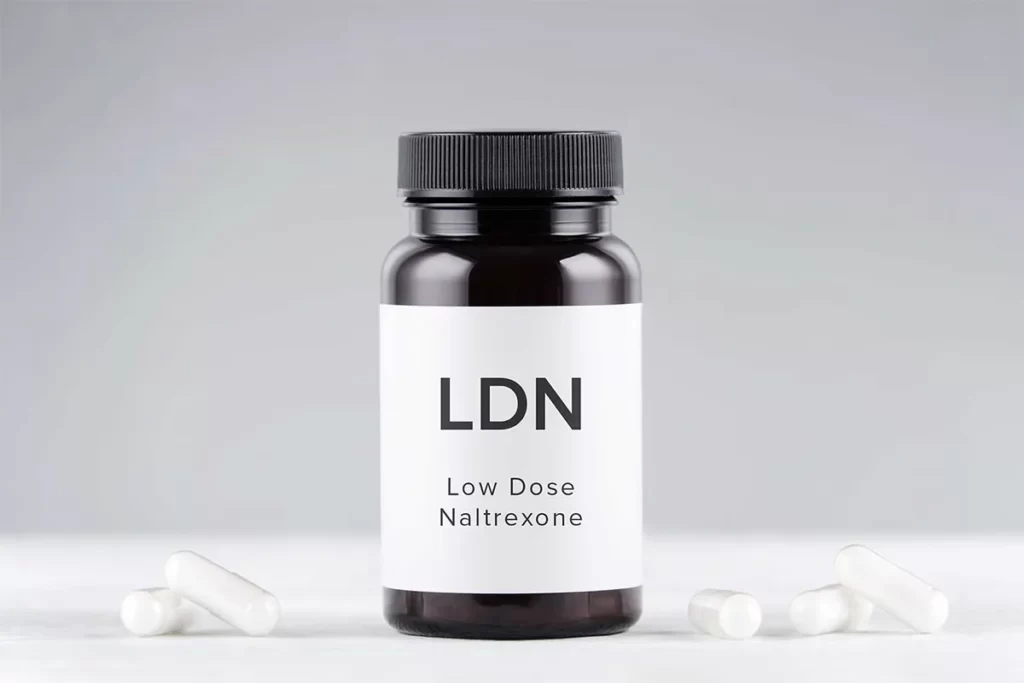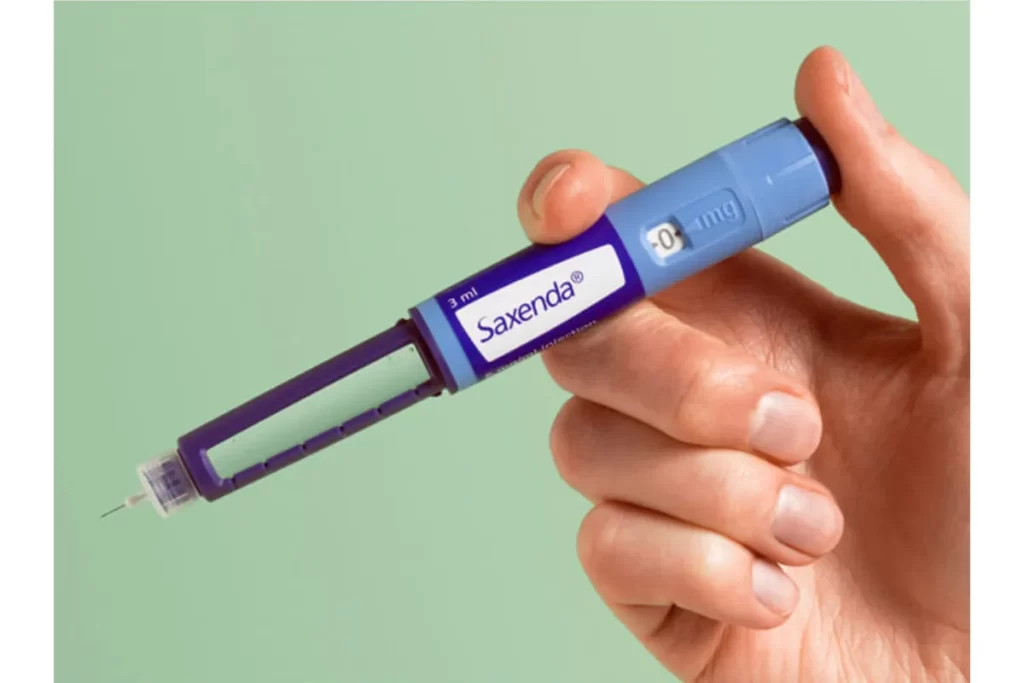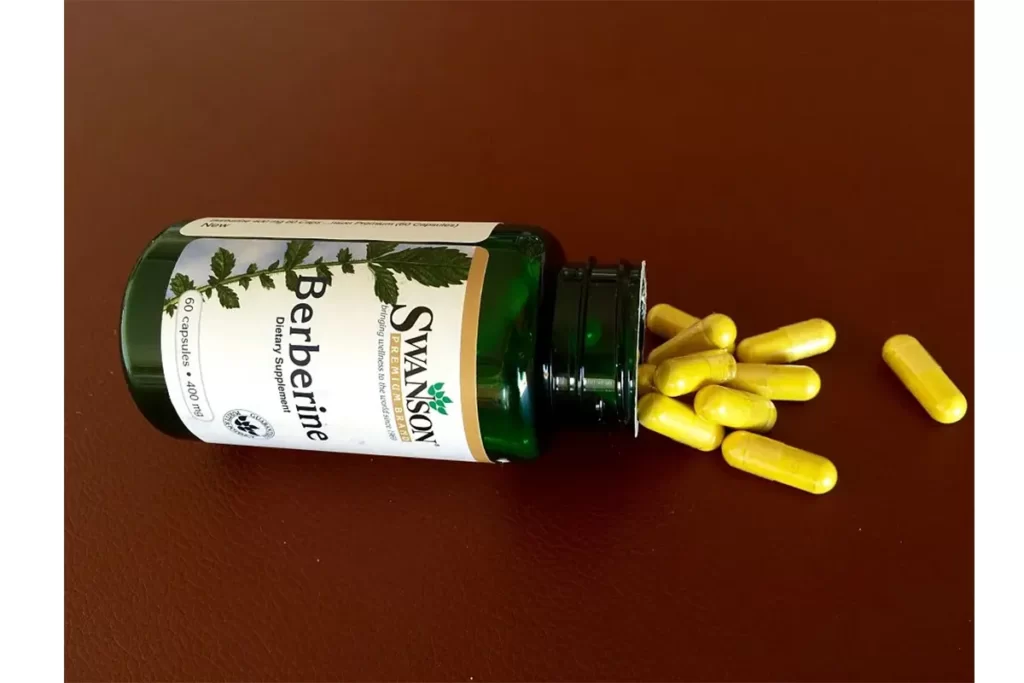Berberine for Skin: The Age-Defying and Acne-Fighting Power
-
 Written by
Michael J. Ormsbee
Written by
Michael J. Ormsbee
- LAST UPDATED October 25, 2023
Berberine is a bioactive compound derived from various plants, such as Goldenseal, Barberry, and Oregon grape. It has been used traditionally in Chinese and Ayurvedic medicine for its numerous health benefits. This golden yellow alkaloid is known for its potential to treat a variety of ailments including digestive issues, diabetes, and infections. Recently, the spotlight has turned to Berberine for skin, with increasing research and user testimonials praising its efficacy for treating skin-related problems. Berberine has shown promising results in addressing acne, skin rashes, and even conditions like melasma. Its anti-inflammatory and antibacterial properties make it a natural choice for those seeking alternatives to conventional treatments. By tapping into the healing powers of berberine, many have found relief and clearer, healthier skin. As we delve deeper, we will explore the intricacies of how berberine can revolutionize your skincare routine and provide a solution to your skin woes.
Berberine for Skin: Understanding Its Impact on Acne
The age-old quest for flawless skin has seen many trends come and go, with varying degrees of scientific backing. Among the myriad of solutions that nature offers, berberine has recently gained attention for its potential benefits, particularly in addressing acne-related concerns. With that said, let’s delve deeper into the efficacy of berberine for skin, especially regarding acne.
How Berberine Helps with Acne:
- Anti-inflammatory Properties
Every blemish or acne lesion, from the smallest whitehead to the most painful cyst, is a result of inflammation in the skin. Acne, at its core, is an inflammatory condition, which is where berberine comes into play. The compound boasts potent anti-inflammatory properties. By reducing the inflammatory response in the skin, berberine for skin can potentially minimize the appearance of acne. Studies have shown that berberine can decrease the production of pro-inflammatory cytokines, which can play a crucial role in acne’s development and exacerbation.
- Antimicrobial Activities
Propionibacterium acnes (P. acnes) is the chief bacterial culprit behind the formation of acne. One of the standout attributes of berberine is its antimicrobial property, which allows it to combat a spectrum of pathogens, including P. acnes. Regular usage of berberine for skin can help in keeping this acne-causing bacterium in check, reducing the chances of acne flare-ups.
- Sebum Regulation
Overproduction of sebum or facial oil is a significant factor contributing to acne, especially in individuals with oily skin types. There’s some indication, albeit preliminary, that berberine for skin can influence sebaceous gland activity, thereby regulating sebum production. A balanced sebum production ensures the skin remains moisturized without the greasiness that can clog pores and lead to acne.
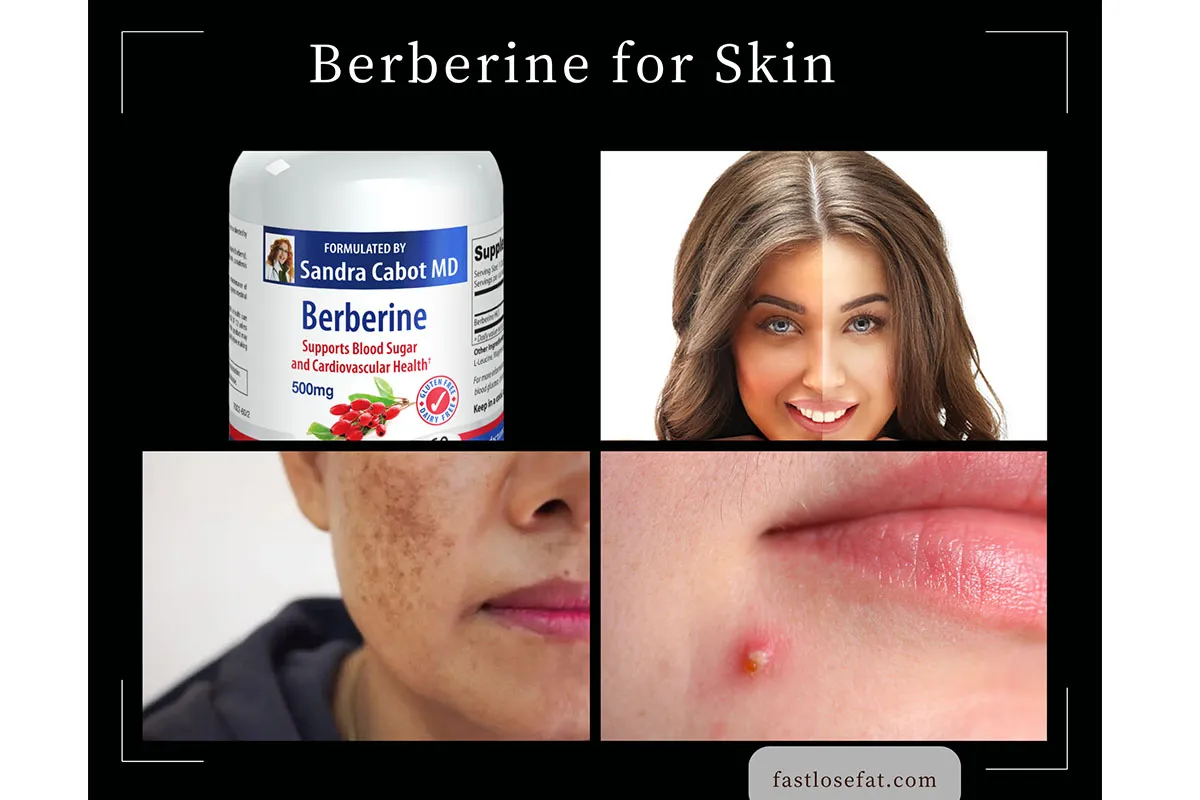
Insights from Berberine Acne Reviews and Reddit Discussions
The world of skincare is as vast as it is subjective. What works wonders for one might not necessarily resonate with another. This subjective nature of skin responses becomes even more evident when perusing reviews, be it on dedicated skincare platforms or more general forums like Reddit.
Positive Experiences:
Many users have lauded the benefits of berberine for skin after incorporating it into their skincare regimen. Common praises include a noticeable reduction in acne breakouts, decreased redness, and an overall improvement in skin texture and tone. These users often cite that berberine acted as a turning point in their battle against persistent acne.
Negative Experiences:
However, the landscape isn’t devoid of dissent. A segment of users has reported minimal to no improvement in their acne condition upon using berberine. A few even mentioned side effects, primarily digestive disturbances, which might be linked to the oral consumption of berberine supplements. The topical application of berberine for skin seems to have fewer reported side effects, though some users did mention initial purging or increased sensitivity.
Highlighting Berberine for Acne Before and After Cases:
The most compelling evidence, especially in the world of skincare, often comes in the form of before and after transformations. While berberine’s benefits can be discussed in abstract scientific terms, visual proof carries a different weight.
Many users have documented their journeys with Berberine for skin, showcasing significant improvements. These visual testimonials often depict a reduction in acne lesions, from inflamed cysts to non-inflammatory blackheads and whiteheads. The skin tone appears more even, and post-acne marks or hyperpigmentation seem reduced.
However, it’s paramount to approach these before and after cases with a grain of caution. While they offer hope and validation, individual results can vary. Factors like overall skincare routine, diet, lifestyle, and underlying health conditions can all influence the final outcome.
Berberine for skin, especially in the context of acne, offers a promising natural avenue for those grappling with this common skin woe. While the scientific community continues its exploration into the depths of berberine’s potential, anecdotal evidence, personal testimonials, and preliminary studies provide a glimmer of its capabilities. As always, if one is considering integrating berberine into their skincare or supplement regimen, consultation with a dermatologist or healthcare professional is advisable.
Berberine for Other Skin Conditions
Berberine, a bioactive compound derived from several different plants, including the berberis plant family, has a long history of use in traditional medicine in Asia. With its numerous beneficial properties, berberine has been studied for various health-related purposes, and recent research suggests that it could also be beneficial for different skin conditions.
One of the primary ways in which berberine can alleviate symptoms of itchy skin and skin rash is through its anti-inflammatory properties. Inflammation is a common underlying factor for these types of skin conditions, and berberine has been shown to inhibit the production of pro-inflammatory cytokines, which are proteins that play a role in the inflammatory process. This can help to reduce the redness, swelling, and itching associated with these conditions. In addition to its anti-inflammatory effects, berberine also has antimicrobial properties that can help to fight off infections that may be contributing to the skin condition. This makes berberine a promising option for treating various types of skin rashes, including those caused by bacterial or fungal infections.
Moreover, berberine may have potential benefits for melasma and skin lightening. Melasma is a common skin condition that results in dark, discolored patches on the skin, often due to hormonal changes or sun exposure. Studies have found that berberine can inhibit the activity of an enzyme called tyrosinase, which is involved in the production of melanin, the pigment that gives color to the skin. By reducing melanin production, berberine may help to lighten the appearance of dark patches on the skin. This makes berberine a potentially effective option for treating melasma and other types of hyperpigmentation.
In addition to its effects on melanin production, berberine may also help to protect the skin from damage caused by ultraviolet (UV) radiation. UV radiation is a major factor that contributes to the development of melasma and other types of skin hyperpigmentation. It can also cause damage to the skin cells, leading to premature aging and an increased risk of skin cancer. Berberine has been shown to have antioxidant properties that can help to protect the skin from the damaging effects of UV radiation. This further supports the potential use of berberine for skin lightening and the treatment of melasma.
As we continue to explore the potential benefits of Berberine for skin conditions, it’s important to note that much of the research on berberine and skin health is still in the early stages. While the available evidence suggests that berberine could be beneficial for a range of skin conditions, including itchy skin, skin rash, melasma, and skin lightening, more research is needed to fully understand the extent of its effects and to determine the most effective ways to use berberine for these purposes.
Berberine for skin conditions is a promising area of research that has the potential to offer new and effective treatment options for a variety of skin conditions. Its anti-inflammatory and antimicrobial properties make it a potential option for treating itchy skin and skin rash, while its ability to inhibit melanin production and protect the skin from UV damage makes it a potential option for treating melasma and achieving skin lightening. However, more research is needed to fully understand the benefits of berberine for skin health and to determine the most effective ways to use it for these purposes.
How Berberine Works
Berberine, a yellow compound found in several plants such as goldenseal, barberry, and Oregon grape, has been used for centuries in traditional Chinese and Ayurvedic medicine. Its numerous health benefits are now being recognized in the modern scientific community, especially when it comes to skin health. The positive impact of Berberine for skin conditions is largely attributed to its anti-inflammatory, antibacterial, and mTOR-inhibiting properties.
The anti-inflammatory properties of berberine are crucial when it comes to treating skin conditions. Inflammation is a common response to various skin irritants and can result in redness, swelling, and pain. Berberine helps to reduce inflammation by inhibiting the production of pro-inflammatory cytokines, which are proteins that play a major role in the inflammatory response. By doing so, berberine helps to alleviate symptoms associated with various skin conditions such as acne, eczema, and psoriasis.
In addition to its anti-inflammatory effects, berberine also possesses strong antibacterial properties. Many skin conditions, including acne, are exacerbated by bacterial infections. Berberine has been shown to be effective against a wide range of bacteria, including those that are commonly associated with skin infections. This makes Berberine for skin conditions like acne an attractive option, as it can help fight off bacterial infections while also reducing inflammation.
Another important way in which berberine works to improve skin health is by inhibiting the mammalian target of the rapamycin (mTOR) pathway. The mTOR pathway is a critical regulator of cell growth and metabolism, and its overactivation has been linked to the development of acne. Berberine has been shown to inhibit the mTOR pathway, which can help to reduce the occurrence of acne breakouts. This makes berberine a valuable tool in the fight against acne, as it addresses one of the root causes of the condition.
In addition to its direct effects on skin health, berberine also has other health benefits that can indirectly improve the condition of the skin. For example, berberine has been shown to improve glucose metabolism, which can have a positive effect on skin health. High levels of glucose in the blood can contribute to the development of acne and other skin conditions. By improving glucose metabolism, berberine can help to reduce the risk of developing these conditions.
Furthermore, berberine has also been shown to have anti-oxidant properties. Oxidative stress is a common factor that contributes to the development of various skin conditions. By reducing oxidative stress, berberine can help to improve the overall health and appearance of the skin.
The benefits of Berberine for skin conditions are wide-ranging and supported by a growing body of scientific evidence. Its anti-inflammatory and antibacterial properties make it an attractive option for treating a variety of skin conditions, while its ability to inhibit the mTOR pathway makes it especially useful for addressing acne. In addition, its positive effects on glucose metabolism and oxidative stress can have indirect benefits for skin health. As research into the benefits of berberine for skin health continues, it is likely that even more uses for this powerful compound will be discovered.
How to Use Berberine for Skin Health
When it comes to utilizing the benefits of Berberine for skin health, it is crucial to understand the correct dosages and supplements, as well as the potential risks and side effects associated with its use. Berberine, with its anti-inflammatory and antibacterial properties, can be a valuable asset in treating various skin-related issues, such as acne, eczema, and other inflammatory skin conditions.
Recommended Dosages and Supplements for Skin-Related Issues
The dosage of berberine depends on the specific skin condition you are treating and your individual health needs. In general, for skin-related issues, the recommended dosage of berberine is between 500mg to 1500mg per day, divided into two or three doses. It is often found in supplement form and can be taken with meals to improve absorption. Berberine supplements are available in various forms, including capsules, tablets, and liquid extracts. When choosing a berberine supplement, it is important to look for products that are standardized to contain a high percentage of berberine, as this will ensure that you are getting a potent and effective product.
Potential Risks and Side Effects
While berberine is generally considered safe for most people, it can interact with certain medications and may not be suitable for individuals with specific health conditions. For example, berberine may interact with medications that are metabolized by the liver, such as anticoagulants and antiplatelet drugs. Therefore, it is important to consult with a healthcare professional before taking berberine, especially if you are currently taking any other medications.
In addition to potential drug interactions, berberine can also cause side effects in some people. Common side effects include digestive issues such as constipation, diarrhea, and abdominal pain. These side effects are typically mild and go away on their own. However, if you experience any severe or persistent side effects, it is important to contact your healthcare provider immediately.
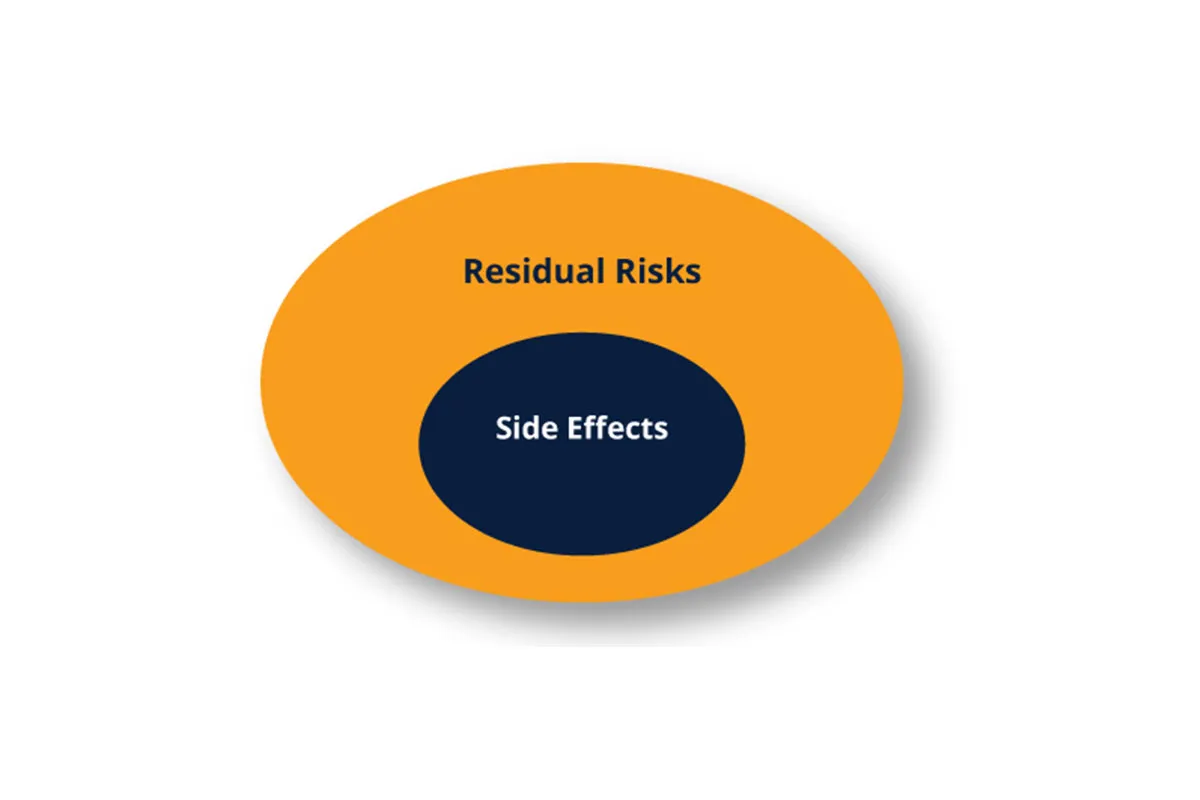
It is also important to note that berberine should not be used by pregnant or breastfeeding women, as there is not enough research to determine its safety in these populations.
Berberine for skin health can be an effective way to treat various skin-related issues, such as acne, eczema, and other inflammatory skin conditions. However, it is important to understand the correct dosages, supplements, and potential risks associated with its use. By doing so, you can safely and effectively harness the benefits of berberine to improve your skin health and overall well-being. Always consult with a healthcare professional before starting any new supplement regimen, especially if you are currently taking other medications or have specific health conditions.
Berberine for Skin of Real People, Real Results
In the world of skincare, results speak louder than words. To truly understand the impact of Berberine for skin health, it is crucial to delve into the experiences of real people who have used this natural compound to address their skin-related issues. Let’s explore 15 real-life cases that exemplify the potential benefits of Berberine for skin.
- Acne Alleviation
On a Reddit thread dedicated to skincare, one user reported that after incorporating Berberine supplements into their routine, their cystic acne significantly diminished within a month. This individual had struggled with acne for years and had tried numerous treatments, but Berberine was the key to their clearer skin.
- Eczema Relief
A member of an online eczema community shared their positive experience with Berberine. After using a Berberine cream for several weeks, they noticed a reduction in redness, itching, and overall discomfort associated with eczema.
- Rosacea Results
An online forum for rosacea sufferers featured a post from a user who experienced reduced redness and fewer flare-ups after incorporating Berberine supplements into their diet.
- Hyperpigmentation Help
A skincare enthusiast on Instagram documented their journey with Berberine for skin discoloration. Over the course of several months, their hyperpigmentation spots lightened, and their skin tone became more even.
- Anti-Aging Achievement
A beauty blogger shared her experience with Berberine on her website, noting significant improvements in fine lines and skin texture after using a Berberine-infused anti-aging serum.
- Psoriasis Progress
A Twitter user shared their success story with Berberine for treating psoriasis. The individual noticed a reduction in scales and itching within just a few weeks of starting Berberine supplements.
- Wound Healing Wonder
An online community for wound healing had a member post about how Berberine ointment helped speed up the healing process of a surgical wound, reducing inflammation and minimizing scarring.
- Melasma Mitigation
A beauty forum showcased a user’s journey with Berberine for melasma. They reported a visible reduction in dark patches on their face after using a Berberine cream for several months.
- Dermatitis Decrease
On a dermatitis support group, one user revealed that Berberine supplements helped alleviate their dermatitis symptoms, reducing redness and flakiness.
- Sun Damage Repair
A skincare group on Facebook had a post from an individual who used a Berberine serum to treat sun-damaged skin. They noticed an improvement in skin elasticity and a reduction in sunspots after consistent use.
- Oily Skin Optimization
A skincare blog featured a reader’s experience with Berberine for managing oily skin. By taking Berberine supplements, the individual observed a significant decrease in oil production and a clearer complexion.
- Sensitive Skin Soothing
An online skincare community had a post from a user with sensitive skin who found relief with Berberine. The individual experienced less irritation and redness after incorporating Berberine supplements into their skincare routine.
- Seborrheic Dermatitis Solution
A Twitter thread about seborrheic dermatitis had a user mention their positive results with Berberine. The individual noticed a significant reduction in scales and itchiness after using a Berberine-infused cream.
- Skin Barrier Strengthening
On a skincare forum, a user talked about how Berberine supplements helped improve their skin barrier function, leading to healthier, more resilient skin.
- Inflammation Inhibition
An Instagram post by a skincare enthusiast showcased their results with Berberine for reducing skin inflammation. They experienced less puffiness and redness after taking Berberine supplements for several weeks.

FAQs about Berberine for Skin
Can berberine make you look younger?
Berberine has been associated with anti-aging properties that can contribute to a more youthful appearance. Its potent anti-inflammatory and antioxidant effects help to protect the skin from environmental damage, such as UV radiation and pollution, which are known contributors to premature aging. Moreover, berberine's ability to inhibit the enzyme elastase may preserve skin elasticity, preventing sagging and wrinkles. Furthermore, studies have shown that berberine can activate AMP-activated protein kinase (AMPK), a cellular enzyme that promotes longevity and enhanced energy production, ultimately leading to healthier, more vibrant skin. However, it's essential to note that while berberine may aid in achieving a more youthful appearance, a comprehensive skincare routine, a balanced diet, and a healthy lifestyle are also integral to maintaining young and healthy skin.
What does berberine do for acne?
Berberine can be a beneficial ally in the fight against acne due to its multifaceted approach to treating this common skin condition. Its antibacterial properties help eliminate acne-causing bacteria on the skin, while its anti-inflammatory effects reduce the redness and swelling often associated with acne breakouts. Moreover, berberine has been shown to reduce the production of sebum, the oily substance that can contribute to acne development. Additionally, berberine's ability to regulate blood sugar levels may also play a role in minimizing acne, as fluctuations in blood sugar can trigger or exacerbate acne in some individuals. It's important to note that while berberine can be an effective component of an acne treatment regimen, it should be used in conjunction with other acne-fighting products and practices for optimal results.
Does berberine lighten skin?
Berberine has been investigated for its potential skin-lightening properties. It is believed that berberine may inhibit the activity of tyrosinase, an enzyme that plays a crucial role in the production of melanin, the pigment responsible for skin color. By reducing melanin production, berberine may help to lighten dark spots and improve overall skin tone. Additionally, its anti-inflammatory properties can reduce redness and discoloration caused by inflammation or irritation. However, it is important to note that while some studies suggest berberine may have skin-lightening effects, more research is needed to fully understand its potential benefits in this area.
Is berberine anti-aging?
Berberine is known to have anti-aging properties that can contribute to healthier, more youthful-looking skin. Its powerful antioxidant effects help to neutralize free radicals, which are unstable molecules that can damage cells and contribute to aging. Additionally, berberine's anti-inflammatory properties can reduce the appearance of fine lines and wrinkles by mitigating inflammation, a known factor in the aging process. Furthermore, studies suggest that berberine can activate AMP-activated protein kinase (AMPK), an enzyme that plays a role in cellular energy production and longevity. By promoting cellular health and vitality, berberine may help to delay the onset of aging signs, leading to a more youthful appearance.
Is berberine good for your eyes?
Berberine has shown potential benefits for eye health, primarily due to its anti-inflammatory and antioxidant properties. These properties may help to protect the eyes from damage caused by oxidative stress and inflammation, two factors that can contribute to various eye conditions, such as cataracts and macular degeneration. Additionally, berberine's ability to regulate blood sugar levels may be beneficial for individuals with diabetes, as high blood sugar can lead to diabetic retinopathy, a condition that can cause vision loss. Furthermore, some studies suggest that berberine may have neuroprotective effects, which could be beneficial for preserving eye health and preventing age-related degeneration. However, more research is needed to fully understand the extent of berberine's benefits for eye health.

